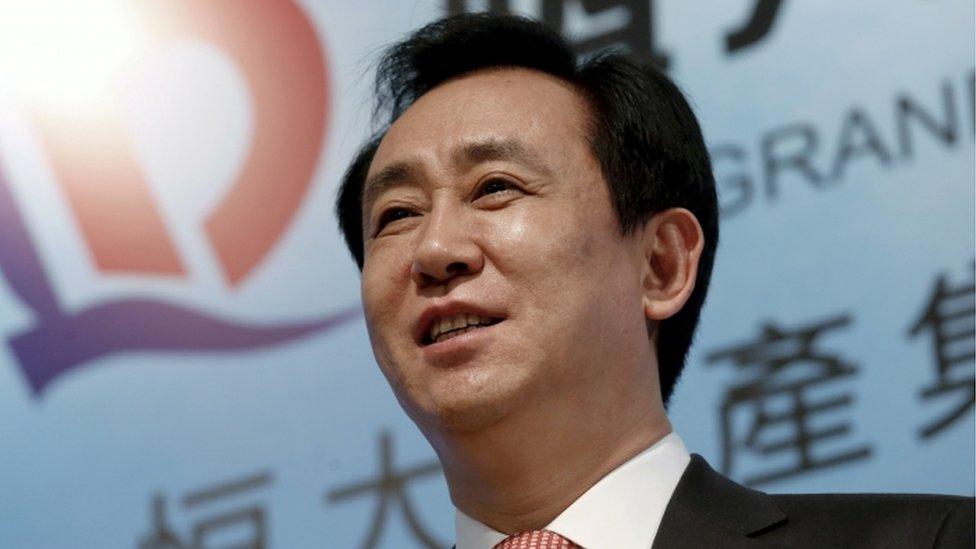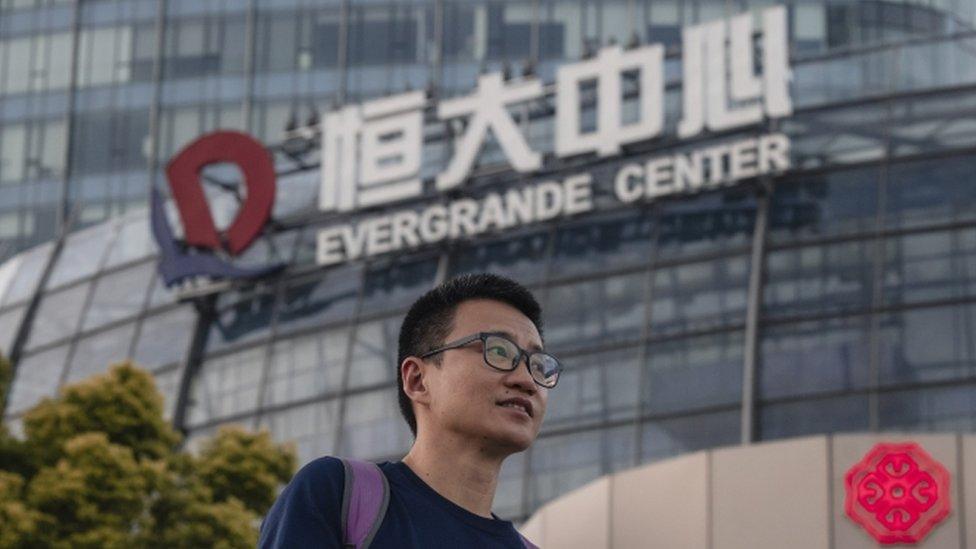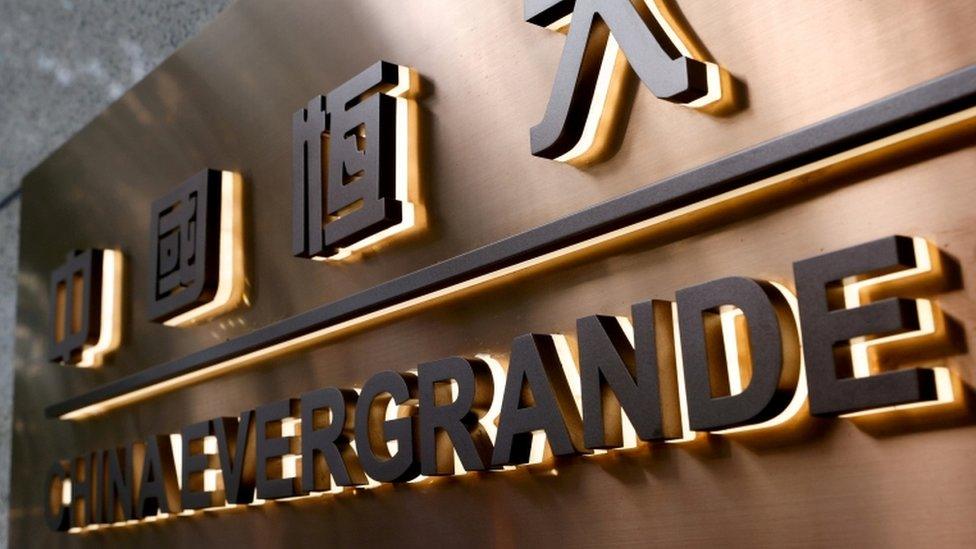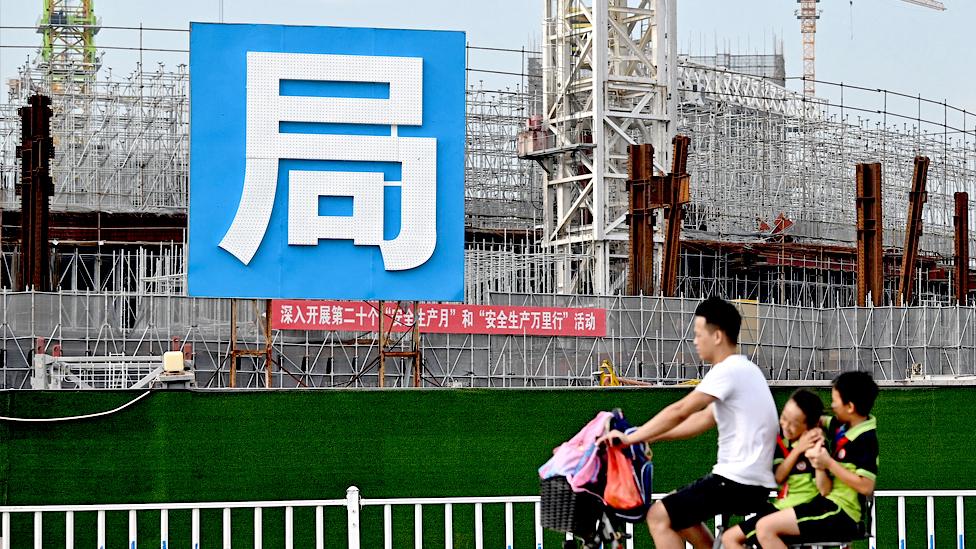Evergrande: China property developer debt default fears grow
- Published

Evergrande's founder Hui Ka Yan was once Asia's richest person
Concerns are growing over potential multi-million-dollar debt defaults by two of China's biggest property companies.
Investors are waiting for news about tens of millions of dollars of overdue interest payments owed by crisis-hit industry giant Evergrande.
The firm has not yet made the payments to bond holders, the BBC understands.
The property developer did not immediately reply to a request for comment from the BBC.
Evergrande's shares closed at a new record low on Wednesday after falling by 5.5% in Hong Kong trade.
The company was due to make $82.5m (£62m) of interest payments on Monday after a 30-day grace period expired.
If, as the BBC understands, Evergrande did fail to make these payments on time, the stage could be set for a massive default by the world's most indebted property developer.
It could trigger a so-called "cross default" on Evergrande's roughly $19bn of international bonds, putting it at risk of becoming China's biggest defaulter.
A cross default is a provision in a bond or loan agreement that puts a borrower in default if they default on another obligation.
Fears about Evergrande's future and the impact of its potential collapse have been looming over the world's second-largest economy for months.
Also on Wednesday, trading in shares of embattled property developer Kaisa was suspended in Hong Kong.
In an announcement to the Hong Kong Stock Exchange Kaisa did not give a reason for the halt in trading.
However, it came after reports that Kaisa was unlikely to be able to meet a $400m offshore debt deadline on Tuesday.
Kaisa is China's biggest holder of offshore debt among developers after Evergrande.
Failure to make the payment could push it into technical default, triggering cross defaults on its offshore bonds totalling nearly $12bn.

Why is Evergrande in trouble?
Evergrande expanded aggressively to become one of China's biggest companies by borrowing more than $300bn.
Last year, Beijing brought in new rules to control the amount owed by big real estate developers.
The new measures led Evergrande to offer its properties at major discounts to ensure money was coming in to keep the business afloat.
Now, it is struggling to meet the interest payments on its debts.
This uncertainty has seen Evergrande's share price tumble by almost 90% over the past year.

Evergrande was once China's biggest property developer, with more than 1,300 real estate projects.
With around $300bn of liabilities, it is now at the centre of a property crisis in China.
The Chinese government has repeatedly said Evergrande's problems can be contained.
Beijing has taken steps to boost liquidity in the banking sector, while the company is said to be pushing ahead with plans to restructure its overseas debt.
Last week, the provincial government of Guandong, where Evergrande is based, stepped in to help manage the fallout, further reinforcing the view among some investors that its failure could be managed.

You may also be interested in:
What China's Evergrande crisis means for the world
- Published6 December 2021

- Published18 November 2021

- Published29 January 2024
